Deciding whether to buy or rent a home is undeniably one of the most significant financial decisions you’ll face. With the backdrop of rising home prices, fluctuating mortgage rates, and competitive rental markets, selecting the right option can profoundly affect your financial future. While buying a home allows you to build equity and accumulate long-term wealth, renting a home provides flexibility and involves lower upfront costs. This guide will delve into the pros and cons of buying vs. renting to help you make a well-informed decision based on your lifestyle, financial situation, and long-term aspirations.
Pros of Buying a Home
1. Build Equity Over Time
One of the most significant advantages of buying a home is the ability to build equity. Each mortgage payment you make increases your ownership stake in your home. Over time, as property values rise, your equity grows, creating a valuable financial asset that can benefit you in the long run.
2. Homeownership Is an Investment
Unlike renting, where monthly payments go to a landlord, homeownership allows you to invest in a property that appreciates over time. Historically, real estate has proven to be a strong long-term investment, with home values increasing by an average of 3-5% annually.
3. Stability & Predictable Costs
When you own a home with a fixed-rate mortgage, your monthly payment remains consistent over the loan’s duration. Unlike renting, where landlords can increase rent annually, homeownership offers cost stability and financial predictability.
4. Personalization & Freedom
Homeowners enjoy full control over renovations, landscaping, and décor. Want to paint the walls, remodel the kitchen, or build an outdoor patio? When you own, the choice is entirely yours—without needing a landlord’s approval.
5. Potential Tax Benefits
Homeowners can take advantage of tax deductions on mortgage interest, property taxes, and even some home improvements. These tax breaks can reduce your overall tax bill, making homeownership more financially beneficial.
6. No More Landlord Rules
When you rent, landlords set the rules—no painting, no pets, and sometimes, unexpected lease terminations. Owning a home means you’re in full control of your living space.
Cons of Buying a Home
1. Higher Upfront Costs
Purchasing a home requires a significant upfront investment, including:
- Down Payment: Typically 5-20% of the home’s price (though FHA loans allow as little as 3.5% down).
- Closing Costs: Expect to pay 2-5% of the home’s purchase price in closing fees.
2. Market Risks & Home Value Fluctuations
While home values tend to rise over time, real estate markets can fluctuate. If you buy at the peak of the market, a downturn could lead to temporary losses in home value.
3. Maintenance & Repairs Are Your Responsibility
Homeownership means handling repairs, maintenance, and unexpected expenses—from fixing plumbing issues to replacing a roof. Unlike renting, where landlords handle repairs, homeowners must budget for annual maintenance costs.
4. Less Flexibility
If you need to move for a job or personal reasons, selling a home takes more time and effort than breaking a lease. The home selling process can take months, and selling in a down market might result in financial losses.
Pros of Renting a Home
1. Lower Upfront Costs
Renting typically requires only a security deposit and first month’s rent—a far lower initial investment than a home purchase.
2. No Maintenance Worries
Renters don’t have to worry about repair costs, property taxes, or maintenance fees. When something breaks, the landlord handles repairs at no cost to the tenant.
3. Greater Flexibility
Renting is ideal for those who move frequently for work, travel, or lifestyle changes. If you’re unsure about settling in one place, renting offers freedom without the burden of selling a home.
4. Easier Approval Process
Getting approved for a rental is typically faster and easier than securing a mortgage. While landlords check credit and income, requirements are usually less strict than mortgage lenders.
5. Access to Amenities
Many rental properties offer luxury amenities like pools, gyms, and concierge services—features that would be costly for a homeowner to install and maintain.
Cons of Renting a Home
1. No Equity or Investment Growth
Unlike homeownership, renting means your monthly payments don’t build wealth. Instead of gaining equity, rent payments go directly to the landlord.
2. Rent Can Increase Over Time
Rental prices rise annually, often exceeding the cost of a fixed mortgage payment. Landlords can increase rent at lease renewal, making it harder to predict long-term housing costs.
3. Limited Control Over Living Space
Renters have restrictions on customization, renovations, and even pet ownership. Unlike homeowners, who can modify their property, renters must adhere to lease agreements.
4. No Tax Benefits
Unlike homeowners who can deduct mortgage interest and property taxes, renters receive no tax breaks on their payments.
Buying vs. Renting: Which Is Right for You?
Consider Buying If:
- You plan to stay in one place for 5+ years.
- You have enough savings for a down payment and closing costs.
- You want to build wealth through home equity.
- You prefer long-term stability and control over your living space.
- You qualify for a low mortgage interest rate.
Consider Renting If:
- You’re unsure about your long-term location.
- You prefer lower upfront costs and zero maintenance responsibilities.
- You want the flexibility to move freely.
- You have a short-term job assignment or travel often.
- You’re not financially ready for a mortgage.
Ultimately, the decision to buy or rent hinges on your financial situation, lifestyle, and future goals.
If you’re ready to invest in homeownership, working with a top real estate agent can help you find the perfect home.
Looking for expert guidance in Tampa, Riverview, Lithia, or Valrico? We specialize in helping buyers and renters make the best housing decisions.
📞 Contact us today for a free homebuyer consultation!
📩 Let’s find your perfect home—whether you’re buying or renting!




